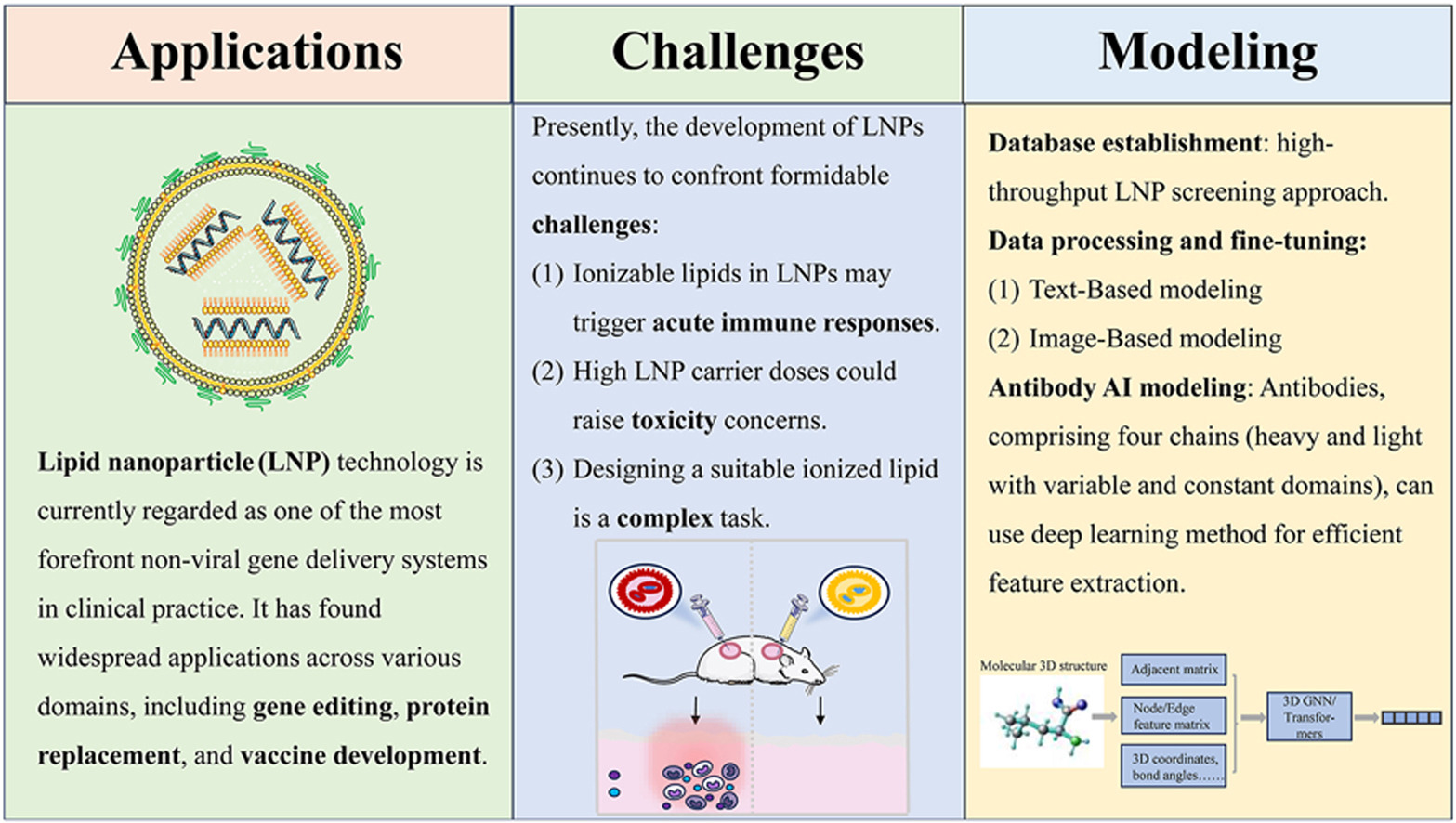-
文章精选
- 当期目录
-
过刊浏览
-
Volumes 96-107 (2025)
Pages 1-332 (September 2025)
-
Volumes 84-95 (2024)
-
Volumes 72-83 (2023)
-
Volumes 60-71 (2022)
-
Volumes 54-59 (2021)
-
Volumes 48-53 (2020)
-
Volumes 42-47 (2019)
-
Volumes 36-41 (2018)
-
Volumes 30-35 (2017)
-
Volumes 24-29 (2016)
-
Volumes 18-23 (2015)
-
Volumes 12-17 (2014)
-
Volume 11 (2013)
-
Volume 10 (2012)
-
Volume 9 (2011)
-
Volume 8 (2010)
-
Volume 7 (2009)
-
Volume 6 (2008)
-
Volume 5 (2007)
-
Volume 4 (2006)
-
Volume 3 (2005)
-
Volume 2 (2004)
-
Volume 1 (2003)
-
Volumes 96-107 (2025)
-
高被引
-
高下载
-
特邀文章
-
专刊合集
-
待刊文章
• Discuss how artificial intelligence influences lipid nanoparticles’ design and optimization.
• Discuss lipid nanoparticles' applications in gene therapy and mRNA vaccine development.
• Discuss the application of artificial intelligence in targeted conjugations of lipid nanoparticles.
• Discuss the application of artificial intelligence in the design of ionizable lipids.
Lipid nanoparticles (LNPs) are nanocarriers composed of four lipid components and can be used for gene therapy, protein replacement, and vaccine development. However, LNPs also face several challenges, such as toxicity, immune activation, and low delivery efficiency. To overcome these challenges, artificial intelligence can be used to optimize the design and formulation of LNPs, as well as to predict their properties and performance. Moreover, antibody-targeted conjugation can be used to enhance the specificity and selectivity of LNPs by attaching an antibody that recognizes a specific antigen on the cell surface to LNPs.

